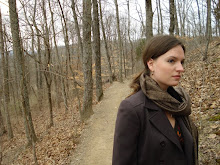From 1 – 11 March 2010, I was privileged to be a part of the bi-annual RAM-Blair School of Music exchange programme, this year focused on ‘opening the composers’ workshop’. During the first week, four students and two composition professors from Blair travelled to RAM to participate in afternoon workshops and other artistic and cultural activities with the RAM team, after which four students (including myself) and two professors from RAM flew to Nashville to spend a second week continuing the work begun in London. Because it was an extremely busy period of time for me with important auditions and other concerts, I was worried about whether or not I’d be able to join effectively; however, I am now very grateful to Peter Sheppard-Skærved for convincing me and twisting the schedule a bit for me to be able to attend. The programme ended up being beyond formative and thought-provoking, to say the least.
At the start of the Blair-RAM workshop weeks, I was excited about the opportunity, but still had many reservations in the back of my mind. I had absolutely no idea what to expect, what we would be doing, who else would be there, or if I really had the time or energy to participate as I wanted in the midst of a particularly busy time for me. Thankfully, I jumped in headfirst anyway, and the rewards were massive.
Even though the first week in
Perhaps that was the most useful part of the two-week journey: learning to let go of my fearfulness of not doing things ‘right’, whatever that means. Giving myself the grace to try things that might fail… or that might just lead to something really interesting. And being surrounded by people who were supportive in allowing that process to occur.
There were two main ways in which this ‘letting go’ process took place. The first was in a four-hour-long mega session with Peter Sheppard-Skærved, reading through some of Kurtag’s Kafka Fragments. Not having been able to learn notes ahead of time, and not possessing perfect pitch, I was terrified at trying to sightread pieces that would have been difficult to get together even with a lot of prepwork. But having an encouraging partner in the process who urged me to aim for rhythm, shape, and character without worrying about the notes made me less frantic (particularly after a midpoint coffee break), and in the end led to far more interesting music making than if I had worked it all out ahead of time. And, according to Peter, I even started singing (most) of the right notes. Because as a singer I would normally have sat down and learned all of the notes first, before rehearsing with a violinist, this forced me to run my usual rehearsing process almost completely backwards… and it led to a new sort of freedom in the rehearsal for me.
This was the second major liberator of the exchange: being the only singer in the group. Because singers tend to have a very pre-determined, specific way of learning, coaching, and talking about music, I tend to forget that there is any other way of addressing what it is we’re trying to do (even though I started my musical life as an instrumentalist). Having two weeks of musical discussions in compositional and instrumental language was fantastic. I already like to think of the voice as another equal instrument rather than as some sort of ‘Other’, and the workshops opened that up in myself and my singing more than I had been able to before. In everything from the Kurtag, to workshopping composers’ new pieces, to a particularly engaging and helpful one-on-one session with Dr. Rose on some Andre Previn songs, I stopped thinking so much like a ‘singer’, and more like a complete musician. How I should be singing and thinking all the time.
Feeling thus inspired, now I simply endeavour to keep these influences a more constant part of my daily practice and performance.
That is, of course, the struggle!

the 'Geode Collective' - the RAM student representatives





No comments:
Post a Comment